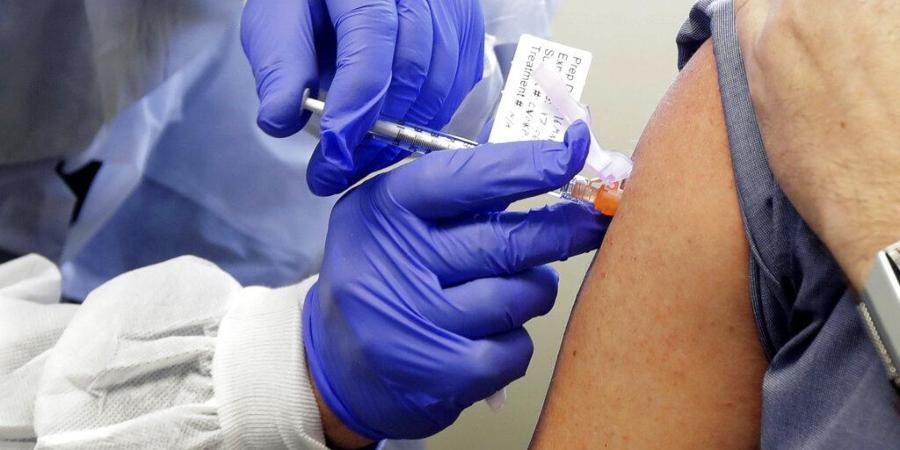
Only way to control pandemic is by ramping up vaccination drive: Experts
Experts believe the government will have to significantly ramp up its immunisation programme to bring the pandemic under control and limit the damage being caused by the second wave of COVID-19

Experts believe the government will have to significantly ramp up its immunisation programme to bring the pandemic under control and limit the damage being caused by the second wave of COVID-19.
As of April 16, Ladakh ranks first among UTs and states in administering the first dose of vaccines (24.5 per cent). Sikkim, Tripura, Chhattisgarh, Himachal Pradesh and Kerala have vaccinated (first dose) 21 to 15 per cent of their populations. The majority of states have vaccinated less than 13 per cent of residents. The drive is yet to pick up speed in Maharashtra (9.2 per cent), Karnataka (9.2 per cent each), Tamil Nadu (5.2 per cent) and Uttar Pradesh (4.2 per cent).
“We will not get the expected impact of vaccination if the rate of spread is faster than the rate of vaccination. This must be the reason for the high prevalence of death in Gujarat,” says Dr Mohammed Asheel, director of Kerala Social Security Mission, which plays a key role in COVID management in the state.
Gujarat is just below Kerala with 14.4 per cent of residents receiving first doses.
Also read: EC decision to curtail poll campaigning to curb COVID spread an ‘eyewash’
According to experts, if the government can expand coverage of the first dose quickly, it will help drastically cut down fatality rate.
“This is precisely the lesson that we have to learn from the experience of countries such as Israel and the UK. Around 95 per cent of the elderly population [60-plus] in the UK has got vaccinated, which has helped bring down the spread and fatality,” says Dr Asheel.
“A recent study suggests that around 80 per cent of recipients have antibody response after the first dose,” says Dr Arun NM, a public health expert.
In a sample of 552 healthcare workers in India (325 male, 227 female), 79.3 per cent showed seropositivity after the first dose. The figure was significantly higher among those who received Covishield, but only 43 per cent among those who took Covaxin. Though the study was not peer-reviewed, Dr Arun thinks that the findings indicate something important. “Two doses of Covaxin are required for having antibody response. Hence we have to count this too when we make claims of vaccination coverage,” he says.
According to the website of the directorate of health service in Kerala, 66 per cent of doses administered in the state were Covishield.
Vaccine shortage is a reality in many states, including Kerala. “We are planning to vaccinate 100 per cent of the 45-plus population by the end of May if we get the required quantity of vaccine on time. This figure comes to 1.13 crore. We need to vaccinate two-and-a-half lakh people a day to achieve this target. If we do this successfully, we may be able to bring down the spread and death rate considerably,” says Dr Asheel.
However, there is scepticism the state will be able to achieve this targets, given fresh challenges of new variants. “Studies suggest that the new variant that originated in India caused 55 per cent surge in Maharashtra,” says Dr Arun.
According to Stanford University researchers, the five new variants identified so far could be more contagious than the original strain and more resistant to existing vaccines.
According to the Indian Council of Medical Research, a new variant, N440K, which is associated with ‘immune escape’, has been found in 123 out of 2,032 samples collected from Kerala. This variant was earlier found in 33 per cent of samples in Andhra Pradesh and 50 per cent in Telangana. The same variant has been reported in the UK, Singapore, Japan and Australia.


